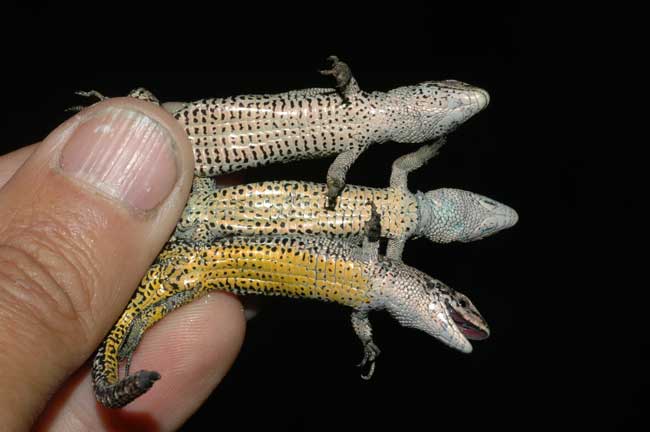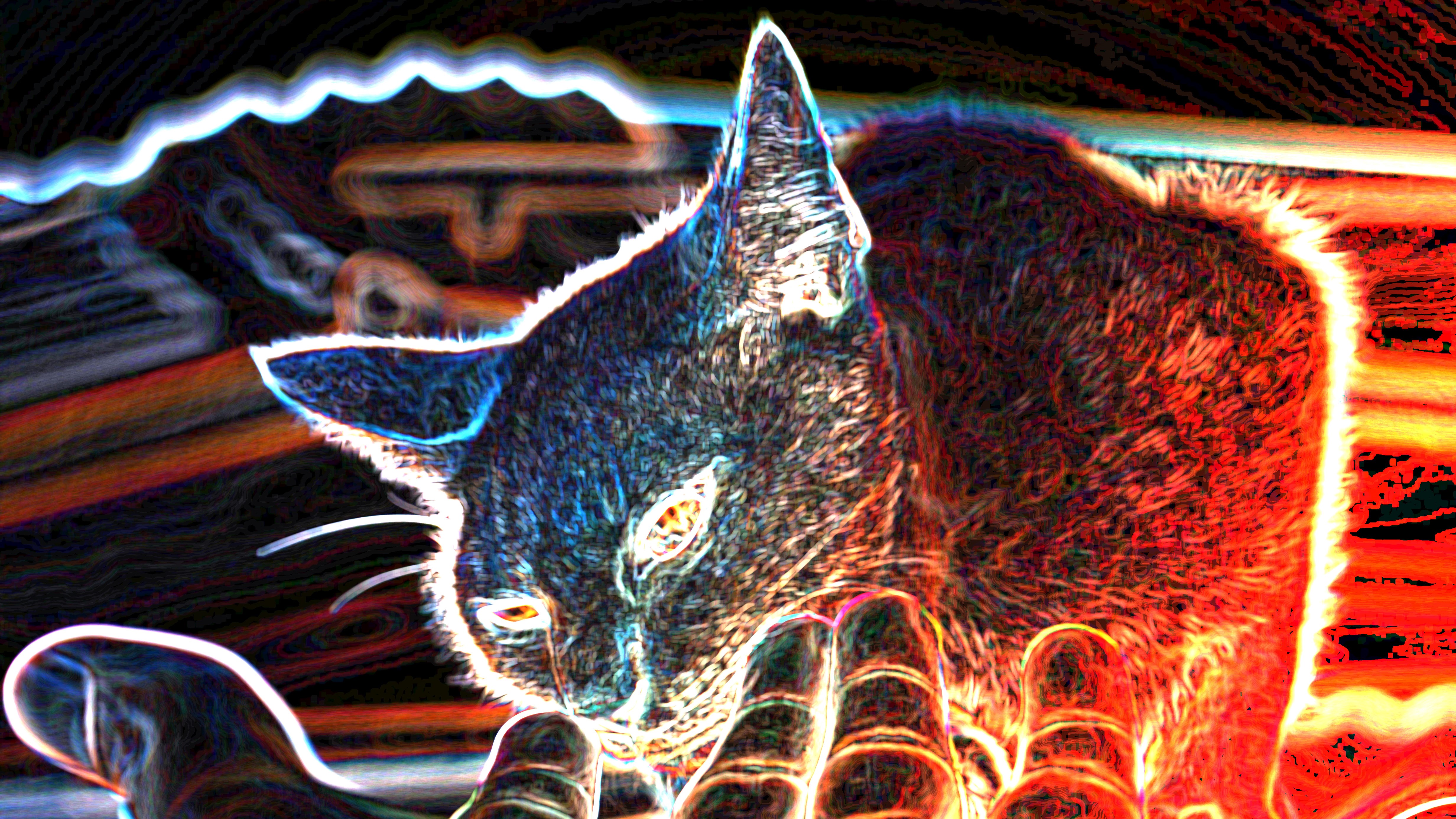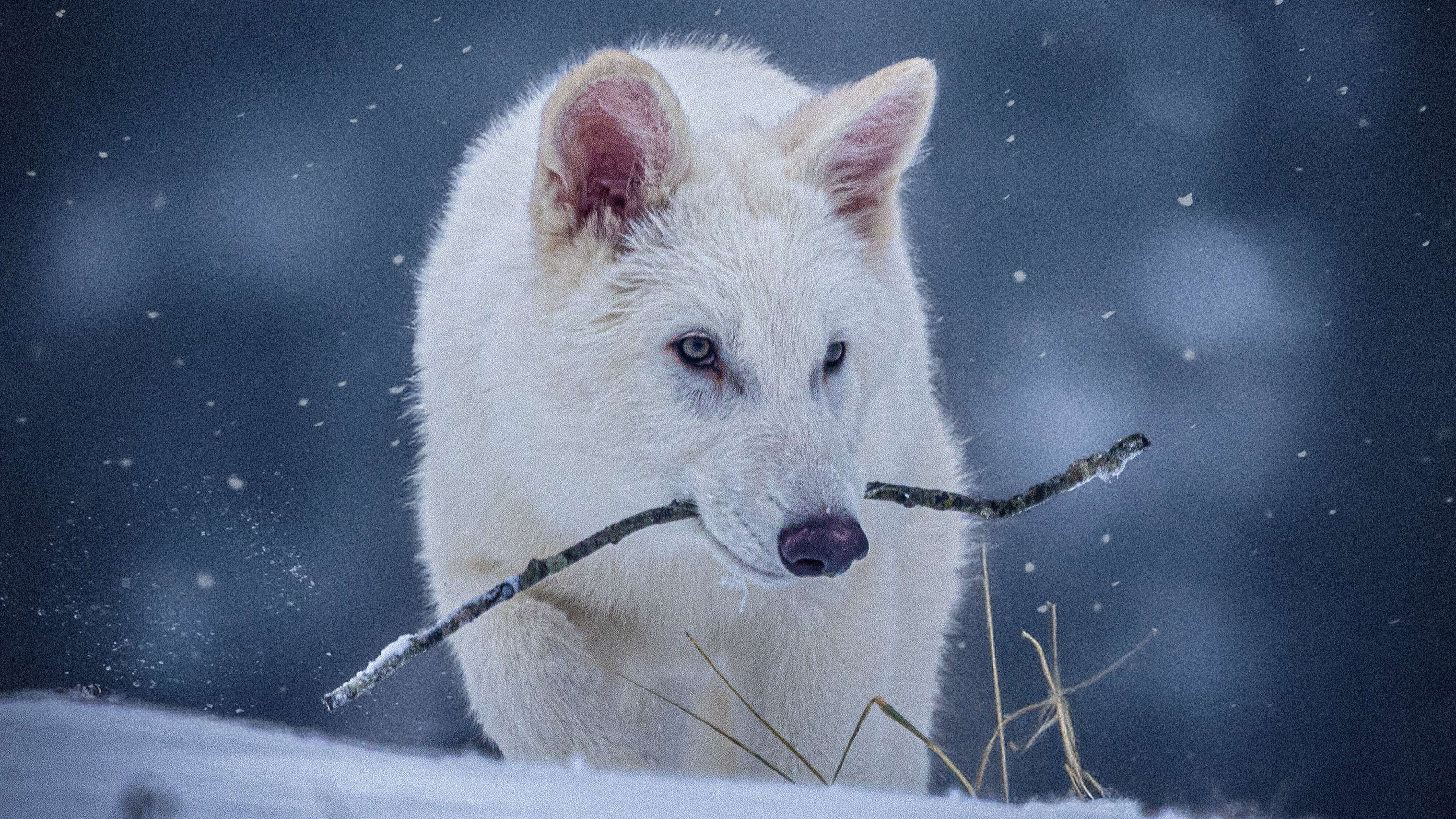Lizard Love Triangles Exposed

A three-way sex struggle resembling the game rock-paper-scissors may have existed for 175 million years or more in lizards, research now suggests.
The reptilian triads may be far more common than previously recognized—and may even shape the way humans behave, the scientists said
"You either cooperate, or take by force, or take by deception," said researcher Barry Sinervo, a behavioral geneticist at the University of California, Santa Cruz. "It's one of those basic games that structures life."
Color-coded
The scientists investigated European common lizards (Lacerta vivipara), devoting five years to studying the lizards at five sites in the Pyrenees mountain range on the border of France and Spain. They captured more than 250 lizards per year and followed their successes and failures.
Sinervo and his colleagues found males adopt one of those three strategies when pursuing females. A quick look at their gaudy-colored bellies reveals which line of attack they will pursue.
Orange-bellied males are brutes that invade other lizards' territories to mate with any female they can hold. But while they're gone, yellow-bellied males sneak deceptively onto the vacant territory and mate with undefended females. White-bellied males guard their mates closely and ally with other white-bellied lizards to keep the yellows at bay. Thus the analogy to rock-paper-scissors—orange force defeats white cooperation, cooperation defeats yellow deception and deception defeats force.
Sign up for the Live Science daily newsletter now
Get the world’s most fascinating discoveries delivered straight to your inbox.
The researchers predicted this species would play the modified rock-paper-scissors game due to a high population density, "which allows a despotic type to flourish, which sets up conditions for cheaters, which in turn sets up conditions for cooperators to invade," Sinervo told LiveScience.
In practice, this game of sex leads to a steady cycling of which lizard color type is prevalent every four to eight years. For instance, orange aggressors may be dominant for a year or two, followed by yellow deceivers, succeeded by white cooperators and then back to orange as the cycle starts anew.
Scientists first conjectured that evolution would conjure up such rock-paper-scissors games in 1968, but they were not actually discovered in nature until 1996, when Sinervo uncovered an example in side-blotched lizards (Uta stansburiana), which are among the most abundant lizards in the arid western United States.
Ancient ritual
Surprisingly, the rock-paper-scissors game the researchers see in the European common lizard is virtually exactly the same in the distantly related side-blotched lizard, "even right down to the same colors," despite the fact that the two species are separated by 5,000 miles and 175 million years of evolution," Sinervo said.
Either this love triangle has evolved twice, "or it's a game that's been played since the time of the dinosaurs, when the two species last shared an ancestor," he explained. "These lizards separated from each other even before the Atlantic ripped open." Sinervo and his colleagues detailed their findings online Oct. 1 in the journal American Naturalist.
There are a few minor differences between how rock-paper-scissors is played between the two species. In the American lizards, the throats, not the bellies, are colored. Also, the counterpart of the white-bellied form in Europe is a blue-throated form in North America—although these colors are similar when viewed in the ultraviolet spectrum, which lizards can see.
The researchers speculated these rock-paper-scissors games might be commonplace throughout the animal kingdom. Many examples could have eluded detection since they may not rely on bright colors as they do in these lizards. For instance, mammals could use rely on scents instead of colors. "If we were Labrador retrievers, maybe we could smell the rock-paper-scissors game all over the place," Sinervo said.
Such games would not be limited to competitions over sex between males. For instance, humans play these games between aggressors, deceivers and cooperators "along an economic axis, a reproductive axis, a familial axis, a political axis," Sinervo said. Although systems with more than three competing strategies could occur, he explained they would likely tend to simplify themselves into a rock-paper-scissors arrangement because triangular relationships are mathematically more stable.
Sinervo now seeks to determine which genes are responsible for this mating game. If the same genes are responsible for rock-paper-scissors in both lizard species, that would suggest the game is at least 175 million years old.
"Catching the sheer volume of lizards is a challenge, in multiple populations, to track the genes across generations," Sinervo said.
- Animal Sex: No Stinking Rules
- Mating Game: The Really Wild Kingdom
- Top 10 Monogamous Animals










